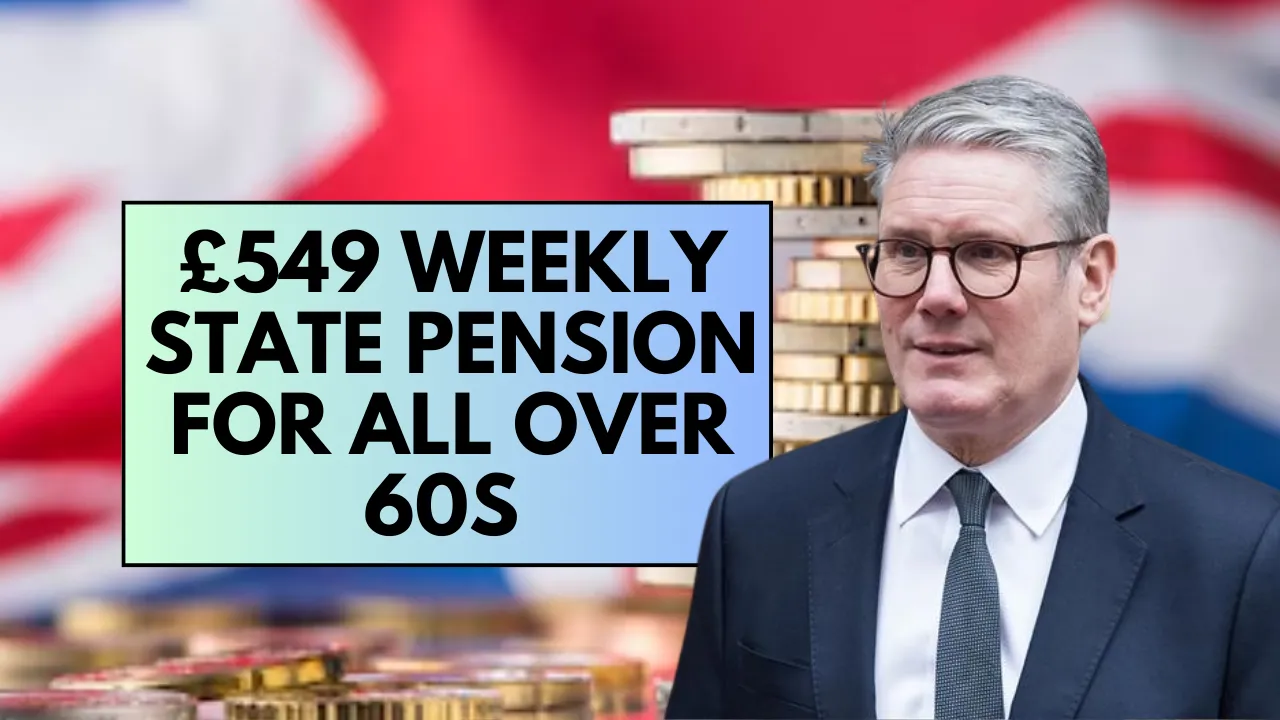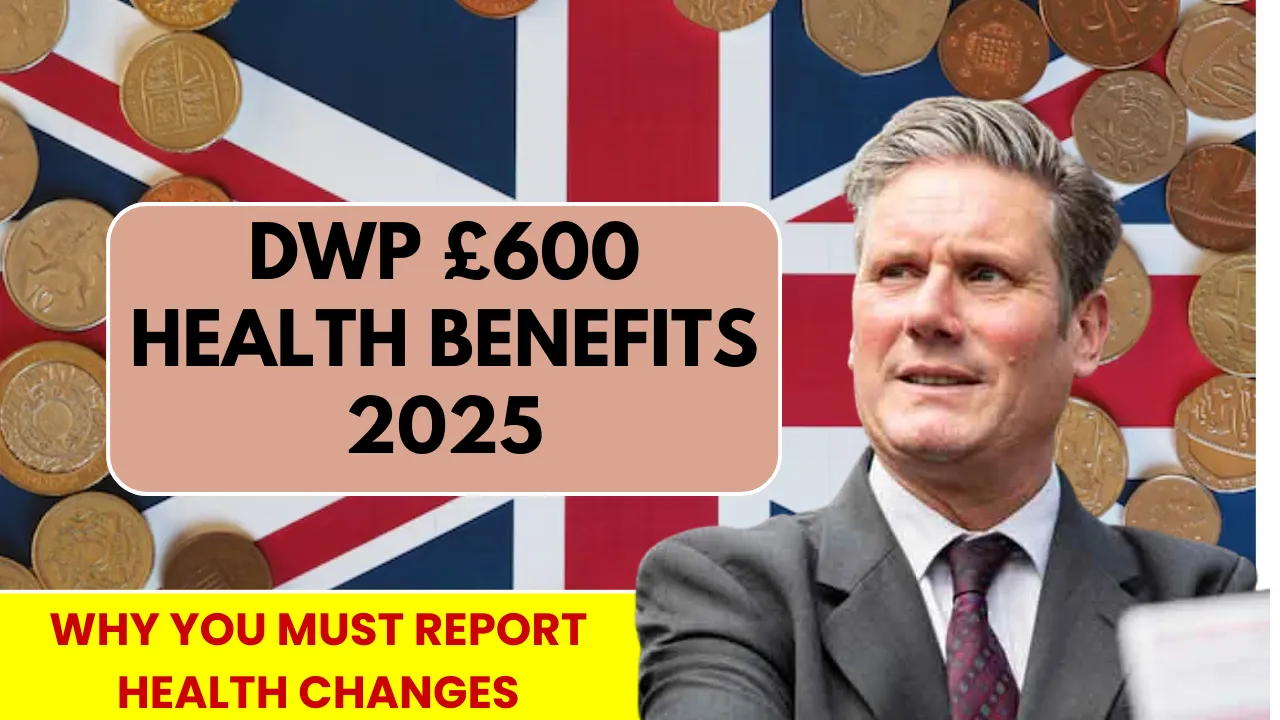DWP PIP Income Tax Limit 2025: State pensioners across the UK may soon see a significant change in how much of their income is taxed. A public petition to raise the personal income tax allowance from £12,570 to £20,000 has gained huge support, opening the door to potential tax reform. If this proposal is accepted, it would provide major financial relief for pensioners, low earners, and those claiming disability benefits like Personal Independence Payment (PIP), especially during this ongoing cost of living crisis.
The DWP PIP Income Tax Limit 2025 could become one of the most significant financial updates for pensioners in recent years. With over 248,000 signatures already supporting the petition, Parliament is now required to consider the proposal for debate. For state pensioners and benefit claimants, this change could mean keeping more of their income without being pushed into a taxable threshold due to rising inflation and frozen allowances.
DWP PIP Income Tax Limit 2025: What You Need to Know
The DWP PIP Income Tax Limit 2025 refers to a proposed increase in the personal allowance—the income you can earn before paying tax. This allowance has been frozen at £12,570 since 2021, failing to keep up with inflation and wage increases. The new proposed limit of £20,000 could result in substantial yearly savings for many households, especially older and vulnerable individuals on fixed incomes.
Overview Table: Key Points on DWP PIP Income Tax Limit 2025
| Aspect | Details |
| Current Personal Allowance | £12,570 |
| Proposed New Allowance | £20,000 |
| Petition Status | Over 248,000 signatures; open until 20 June 2025 |
| Parliamentary Action | Required to consider debate after 100,000 signatures |
| Potential Tax Savings | Up to £1,486 per year for basic-rate taxpayers |
| Who Benefits | Pensioners, low earners, disabled individuals, working-class households |
| Challenges | Estimated £40–£50 billion annual cost to the Treasury |
| Possible Trade-Offs | Increase in VAT or National Insurance, or cuts to public spending |
Why Increase the Personal Tax Allowance?
There’s growing public pressure to revise the personal tax system to reflect modern economic conditions. The current allowance of £12,570 has been frozen since 2021, which means that as wages, pensions, and benefits rise, more people are being pulled into the tax system—even if their real incomes haven’t increased significantly.
The push to raise the allowance to £20,000 has several key benefits:
- Helps low earners by reducing their tax burden, increasing take-home income.
- Supports pensioners, many of whom live on modest incomes from the state pension and may be taxed unnecessarily.
- Reduces dependence on benefits by giving people more control over their finances.
- Stimulates the economy by increasing disposable income, encouraging spending.
Government Response & Next Steps
Under the UK Parliament petition rules:
- At 10,000 signatures, the government must issue a response.
- At 100,000 signatures, the matter must be considered for Parliamentary debate.
This petition has surpassed both thresholds, meaning debate is now a real possibility. However, a government decision will also depend on fiscal projections, potential tax losses, and overall budget impact.
So far, the government has acknowledged the petition but has not committed to any changes. It remains cautious, citing financial strain and the need to fund public services such as health, welfare, and education.
Understanding the UK Personal Tax Allowance
The Personal Allowance is the portion of income on which no income tax is paid. Currently:
- Everyone gets £12,570 tax-free each year.
- If you earn over £100,000, this allowance is reduced by £1 for every £2 above that threshold.
- At £125,140, you lose the allowance entirely.
There are also specific allowances available for married couples:
- Marriage Allowance lets a lower-earning spouse transfer £1,260 of their allowance.
- Married Couple’s Allowance applies if one partner was born before April 6, 1935, offering additional tax reductions.
Potential Impact of Raising the Allowance to £20,000
If approved, the allowance increase would offer meaningful support to millions. Here’s who benefits most:
- Low-income workers: More of their income would be tax-free.
- State pensioners: Many would pay zero income tax on their pensions.
- Middle-income earners: Could save up to £1,486 a year in income tax.
It would also help address bracket creep, where individuals pay more tax due to inflation rather than real income growth.
Challenges & Concerns
Despite the positives, there are serious concerns about the financial cost of raising the allowance. Experts estimate:
- The move could cost the UK Treasury £40–£50 billion per year.
- This could lead to cuts in public spending or higher taxes elsewhere, such as VAT or National Insurance.
- Increased disposable income could also drive inflation, impacting the very people the policy aims to support.
Support Grows Through Public Petition
The petition to increase the personal allowance continues to gain signatures daily. With the debate now required in Parliament, the issue is under serious national review. Many advocacy groups, pensioners’ associations, and disability charities have shown support, highlighting the real-life struggles of people on fixed incomes.
The petition will remain open until 20 June 2025, giving more people a chance to express support and influence decision-makers.
Final Thoughts
The campaign to raise the DWP PIP Income Tax Limit 2025 is about more than just numbers—it’s about fairness, financial security, and modernising a tax system that hasn’t kept pace with economic changes. For state pensioners, PIP claimants, and low-income workers, this increase could mean the difference between struggling and staying afloat.
FAQs
What is the UK Personal Allowance?
The Personal Allowance is the income you can earn without paying tax. It’s currently £12,570.
Why is there a petition to raise the allowance to £20,000?
Supporters say it helps pensioners and low earners keep more of their money, while also stimulating the economy.
How much tax would I save?
If the allowance increases to £20,000, a basic-rate taxpayer could save up to £1,486 per year.
Will pensioners benefit from this change?
Yes, most state pensioners would pay little or no tax on their pension income if the limit rises.
What happens next with the petition?
With over 100,000 signatures, Parliament will consider debating the proposal in the coming weeks.











